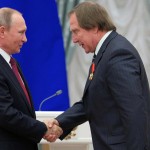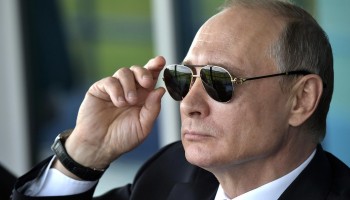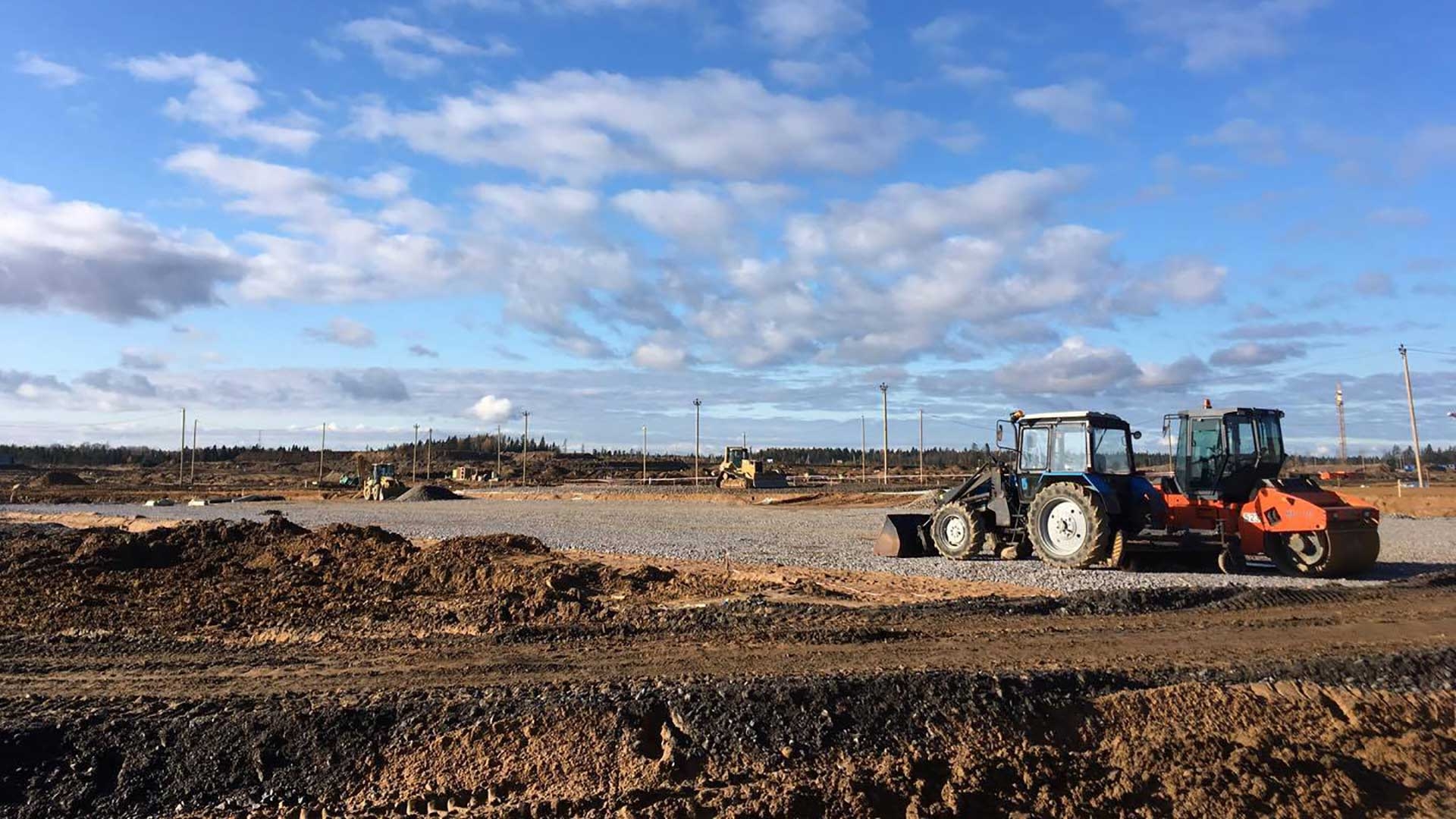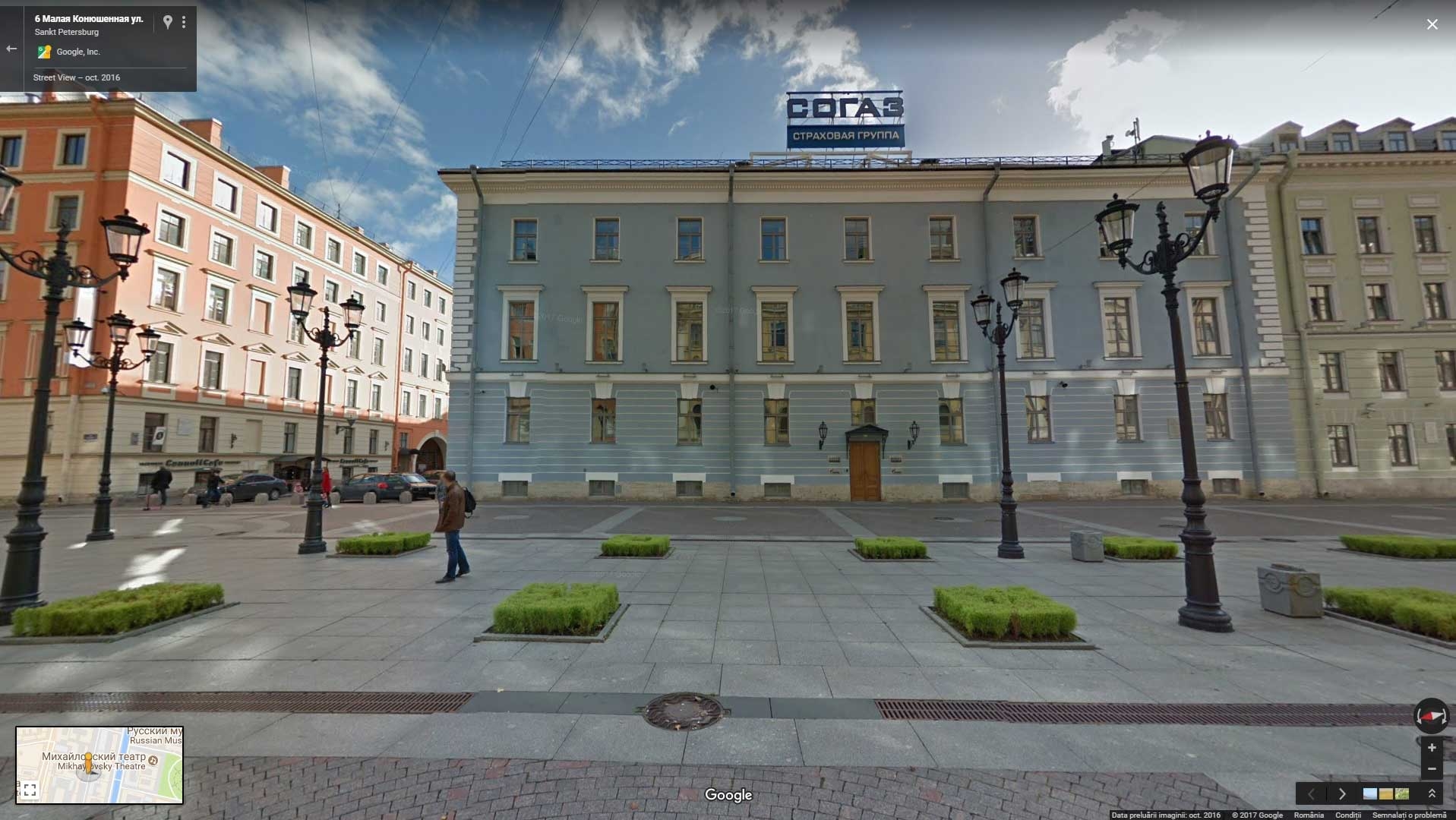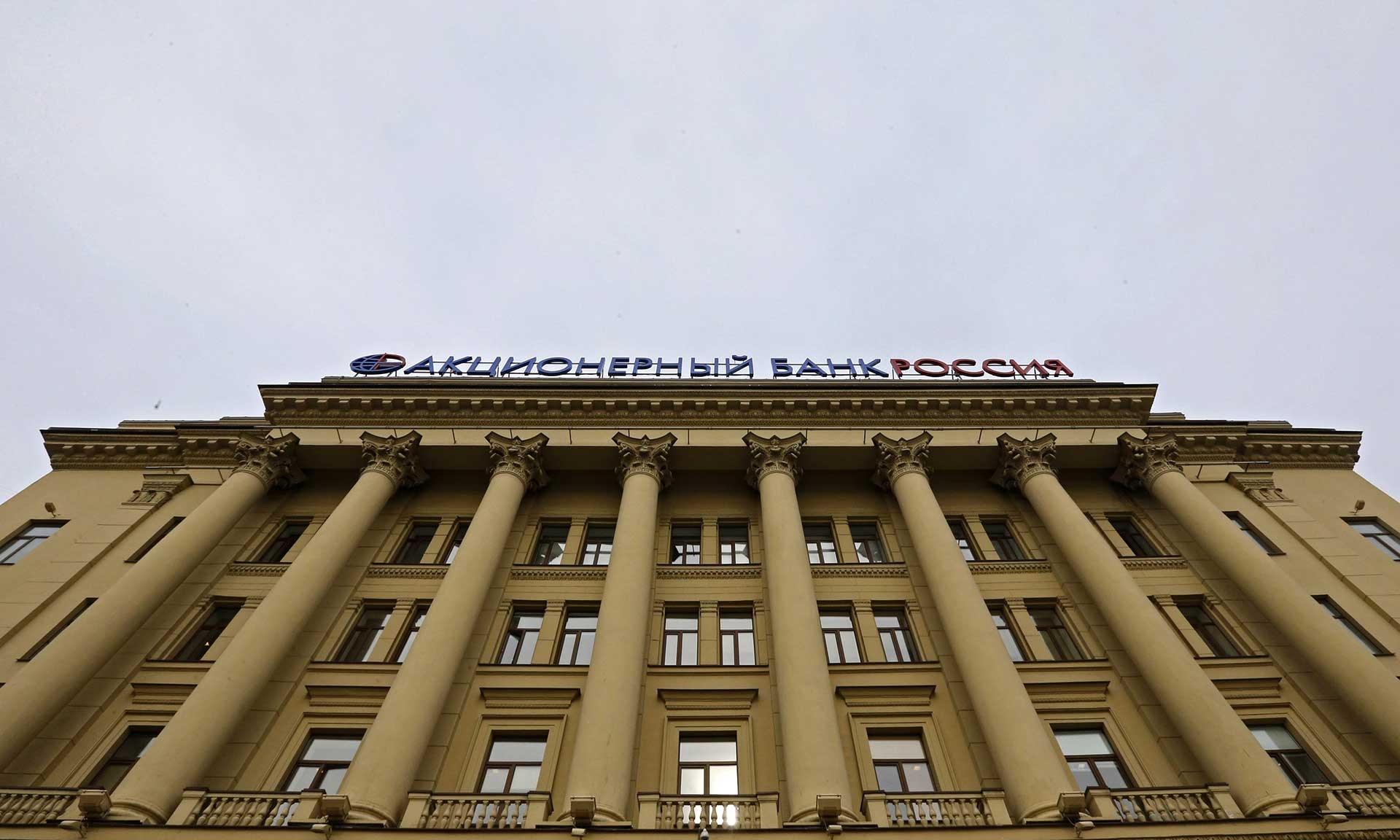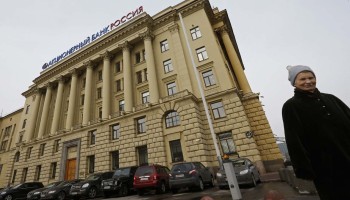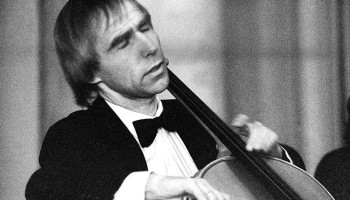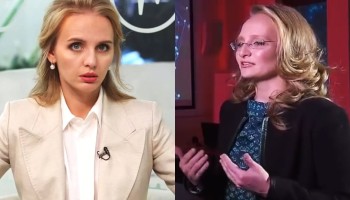Vladimir Putin has always denied having any serious wealth. But one of his relatives somehow amassed as much as $573 million in assets while working at an $8,500 per year job.
Russian president Vladimir Putin has denied rumors that he is one of the world’s wealthiest men.
He has even joked about not needing the money. "In the coffin, there are no pockets. You can't take the money with you to the grave,” he told US filmmaker Oliver Stone in a documentary shown earlier this year.
When asked whether his riches are on par with the Rockefeller, Morgan, or Onassis families, Putin laughed, saying, "I have no such wealth, as has been said."
It’s true that Putin’s name has never emerged in any publicly available documents that would attest to massive riches or offshore companies. According to asset declaration forms collected by Transparency International, he had a modest bank account and property -- but no titles to luxury yachts or opulent villas. His annual income in 2016 amounted to 8.9 million rubles (around US$133,000). But few believe that he’s just a modest civil servant. The evidence suggests that he may handle his wealth in a more complicated way.
Among the president’s friends and relatives are individuals who have never been engaged in politics or big business. They flaunt no obvious wealth, hold no prestigious jobs, and live modest lives. But, somehow, they’ve come to hold enormous assets worth hundreds of millions of dollars -- though sometimes they can hardly recall the names of the companies they own.
The wealthy “specialist”
One of these men is Mikhail Shelomov, 49, the son of Putin’s cousin Lyubov Shelomova.
Shelomov appears in no publically available photos -- he is not a well-known figure. He has spent the last decade employed as the “chief specialist” at a St. Petersburg subsidiary of Sovcomflot, a state company that ships oil and oil products. He answers the office phone himself and responds politely to reporters’ questions.
The subsidiary, SCF Arctic, does not disclose its employees’ salaries. According to Trud.com, a Russian jobs site, a position like Shelomov’s typically pays about 40,000 rubles per month, or about $8,400 per year.
It’s hardly an extravagant income. But over several years, OCCRP reporters have found, Shelomov has acquired assets worth US$ 573 million, according to the latest available figures.
Most of this known wealth consists of shares in large corporations connected to Vladimir Putin’s inner circle. They are held by Accept, a St. Petersburg-based company owned by Shelomov, according to Russian business records. Accept has no web site and seems to conduct no business -- its sole purpose appears to be to own shares of other companies.
The Speedway
Some of Accept’s activities are hardly familiar even to Shelomov himself.
At the end of 2016, OCCRP reporters learned that Accept became a 50 percent co-owner in Igora Drive, which is building a racetrack near St. Petersburg, close to the Igora ski resort.
Igora
The racetrack in Igora is a world-class project designed by Hermann Tilke, a prominent German architect who has designed Formula One speedways all over the world. Such sports facilities have been used by the Russian government to showcase the country’s place on the world stage. And they don’t come cheap. According to Business Petersburg, the Igora track will cost about 11 billion rubles ($192 million).
But when OCCRP reporters called Shelomov this spring to ask about the project, his first response was surprise at being contacted.
“Why are you asking me?” he asked.
Reminded by reporters that his firm owns half of the company that’s building the track, Shelomov couldn’t elaborate. “I’ve heard of it, of course, but not more.”
He told OCCRP that he didn’t know all the details, only what the reporters already knew. He described the site as an “empty field” and the project as being “still on paper.”
Work on the project began in late 2016, according to an interview given by one of Shelomov’s co-investors, racetrack aficionado Vladimir Vasiliyev, to a Russian motorsport publication.
Shelomov’s co-investors in the track are two prominent insiders -- Yuri Kovalchuk, a banker who is close to Putin, and Vasiliyev.
Kovalchuk is in the Russian Forbes list of the wealthiest Russians, with a fortune of $1 billion. Along with other members of Putin’s inner circle, he has been under US sanctions since 2014 in response to Russia’s invasion of Crimea.
Vasiliyev is a major contractor for the Russian Railways, a state monopoly close to the Kremlin, and was known as a hunting partner of the railways’ former president and Putin friend Vladimir Yakunin. Over the last four years, Vasiliev won 21.8 billion rubles ($382 million) in contracts from Russian Railways, according to the SPARK Interfax database.
Representatives for Vasiliyev and Kovalchuk did not respond to requests for comment for this story.
It’s no mystery where these wealthy men could have gotten the resources to invest in a modern racetrack. But where did Shelomov, the “chief specialist,” get the funds for such a large investment -- and why does he know so little about it?
The Kinsman's Money
Using publically available documents, OCCRP reporters calculated the value of the assets Shelomov’s company, Accept, has come to own since 2004. As of the latest available figures, they were worth a total of $573 million dollars -- though some may have changed in value over time.
2004 was a big year for Shelomov.
That year, his company received an $18 million loan from a Panamanian offshore company called Santal Trading Corporation at a 5 percent interest rate. The loan agreement didn’t specify any collateral or any other mechanism to ensure repayment.
Santal Trading
Later that same year, Accept obtained a small stake in Bank Rossiya, which was later increased to 6.1 percent.
Bank Rossiya is notorious for being the bank of Putin’s friends, and was put under US sanctions in 2014, along with its major shareholders, Yuri Kovalchuk and Gennady Timchenko. Nikolai Shamalov and musician Sergei Roldugin, who is Putin’s daughter godfather, are among the bank’s minor co-owners.
Also in 2004, a subsidiary of Bank Rossiya acquired a valuable asset -- a majority stake in SOGAZ, the insurance company of the state energy giant Gazprom.
At nearly the same time, Shelomov’s Accept got a piece of SOGAZ too, obtaining 12.47 percent of the company. Considering the amount Gazprom received in its earlier sale, Accept’s SOGAZ shares may have been worth over $421 million rubles ($14.6 million).
But, though SOGAZ had been unloaded by Gazprom, it continued providing insurance services to the energy giant as it continued to grow. By 2013, the value of Accept’s stake had grown to 6.17 billion rubles ($193.4 million), according to a 2013 valuation of SOGAZ by Gazprombank.
Several years later, in 2009, Accept became the owner of SOGAZ-Nedvizhimost, a subsidiary that deals in real estate and owned the SOGAZ office building in St. Petersburg. In early 2010, this company’s assets were worth 1.04 billion rubles ($34.2 million), according to its financial statements. The company was successful, with total revenues of over 1 billion rubles between 2012 and 2016. It is not clear where Shelomov and Accept got the money for the purchase.
SOGAZ representatives did not respond to an OCCRP request for details about how Shelomov became its owner.
One former banker, who asked not to be identified, explained to reporters how such schemes might be used to enrich people as desired.
“It’s not difficult for a Russian banker or large company to make a fortune for the right person, so that everything will look legitimate according to the documents. You could give this person a loan without looking at their security or worrying about the guarantee. And then eventually assign the right to claim [repayment] to a firm under his control.”
“Or,” he continued, “you could give him a large loan to buy shares while using those same shares as collateral, knowing that their value will increase substantially in a short period of time. The person will sell the shares, return the loan, and he’ll have plenty of money left. There are a lot of techniques like this.”
Platinum wealth
OCCRP reporters have discovered that Shelomov acquired further considerable assets through a company called Platinum, which Accept acquired in November 2009. According to its balance sheet, at that time, Platinum had assets worth 10.3 billion rubles ($324 million).
Where did they come from?
As it turns out, Platinum had been connected to the brothers Arkadiy and Boris Rotenberg, old friends of Vladimir Putin and two of Russia’s largest and most successful state contractors. The brothers are the majority owners of SMP Bank, which received support from the state after being included in the US sanctions list. The Rotenbergs are also under US sanctions personally because of their positions in the Russian president’s inner circle.
Platinum had been part of a group of three companies linked to the Rotenberg’s SMP Bank. These companies dealt in real estate and vodka (in fact, a vodka brand named after Putin). And they were tightly intertwined -- they owned each other, had the same founders and CEO, and shared a phone number and an address right next door to SMP Bank’s central office in Moscow.
The director of Platinum and the other two companies was a man named Nikolai Tsed, a former scientific supervisor of Arkadiy Rotenberg at the St. Petersburg State Academy of Physical Culture in the early 2000s. Tsed is now the head of the Primorsky district in St. Petersburg. His press office refused to respond to OCCRP’s requests for comment about these deals.
Through the acquisition of Platinum, Shelomov’s company further increased its shares in Bank Rossiya.
Strangely, one year before being acquired by Accept, Platinum -- a relatively unknown company -- had become one of the bank’s largest creditors. According to its second quarter 2008 report, the bank owed Platinum 4.08 billion rubles (about $164 million).
By the third quarter of 2008, the debt had been repaid -- and later Platinum obtained a minor stake (2.27 percent) of Bank Rossiya. With his acquisition of Platinum, this stake now also belonged to Shelomov.
It is difficult to estimate the total value of Shelomov’s stake in Bank Rossiya, because shares of the private bank is not publicly traded. According to OCCRP reporters’ analysis, Accept’s total shares of 8.4 percent of the bank -- including the Platinum stake and the earlier acquisitions -- could be worth about $21 million in 2016.
Bank Rossiya representatives did not answer OCCRP’s questions about these deals. SMP Bank’s press office strongly denies any connection between the bank, Platinum, and the other two companies Rotenberg companies. “We have nothing to say about the activity of those firms,” the bank's spokesperson told OCCRP.
In his interview with reporters, Shelomov did not shed any more light on these transactions or his racing track. He refused to talk to OCCRP about Platinum, asking why reporters were so curious about his assets.
Told that people worth almost $600 million don’t often work at such modest jobs with modest salaries, he said that “there may be different reasons,” but did not go into details.
In a previous interview in 2009, Shelomov told OCCRP partner Novaya Gazeta that Accept was his personal project and that top officials have nothing to do with his business.
Now, after being asked if he was stepping forward as an owner for someone else, Shelomov ended the interview.
Other Cronies
The Shelomov case fits an established pattern. There are others in Putin's orbit like him -- people who are not big businessmen and don’t look like millionaires, but who are listed as owners of huge assets provided by the president’s associates.
Sergei Roldugin, a cellist and an old friend of Putin, figured prominently in the Panama Papers, but always said that he was not a businessman. When Novaya Gazeta journalists asked him specifically about his offshores, he did not give a direct answer. According to the Panama Papers, around $2 billion were transferred through firms related to Roldugin from state-owned banks and the Rotenberg brothers.
Pyotr Kolbin also fits the pattern. Though he is listed in the Russian Forbes list as having a fortune of $550 million, he told a reporter from the Vedomosti business daily that he is “not a businessman.” This was confirmed by Vedomosti reporters -- as it turns out, Kolbin leads a quiet life and once worked as a butcher.
But in September 2016, after talking to his school teachers, neighbors, and family friends, the Russian TV channel Dozhd reported that Kolbin and Putin were childhood friends -- something Putin's Press Secretary, Dmitry Peskov, denied.
Kolbin’s fortune appears to be based in Russia’s vast and politically-connected energy sector. He once owned about 10 percent of Gunvor, an oil trading company co-founded by Gennady Timchenko that, at one point, traded about one-third of Russian oil.
In 2010, it was discovered that Kolbin had, at some point, bought from Gazprombank a 25.1 percent stake in Yamal LNG, a project with a license to develop the enormous Yuzhno-Tambeiskoye gas field in Russia’s far north. The sale was worth 2.6 billion rubles ($81.8 million). In 2011, Kolbin sold those shares to Novatek for $526 million -- a profit of almost $445 million.
Back to Putin
Vladimir Putin has plenty of friends and associates whose personal wealth is easy to explain -- oil magnates, heads of state companies, politicians, and other powerful public figures.
But the likes of Shelomov, Roldugin, and Kolbin are different. Though they hold vast assets, often acquired through mysterious deals, they do not show off their wealth, live their lives quietly, and are unused to talking to the media.
Given their personal and familial connections to the president, this raises the obvious question. Is it Putin’s money?
When a reporter suggested as much to Shelomov, the man’s response was ambiguous: “Well, these are your thoughts,” he said.
A former KGB officer who requested anonymity said that, given Putin’s past as a KGB officer, he “will never leave any trace, [such as] a signature on a document, that could somehow compromise him, or [allow] his name [to appear] in some papers indicating ownership of large assets. Other senior Russian officials are also smart enough not to leave traces.”
“Why should they, if there are trusted people from the inner circle or some distant relatives who can keep all the assets? And everything is all right from the legal point of view.”

